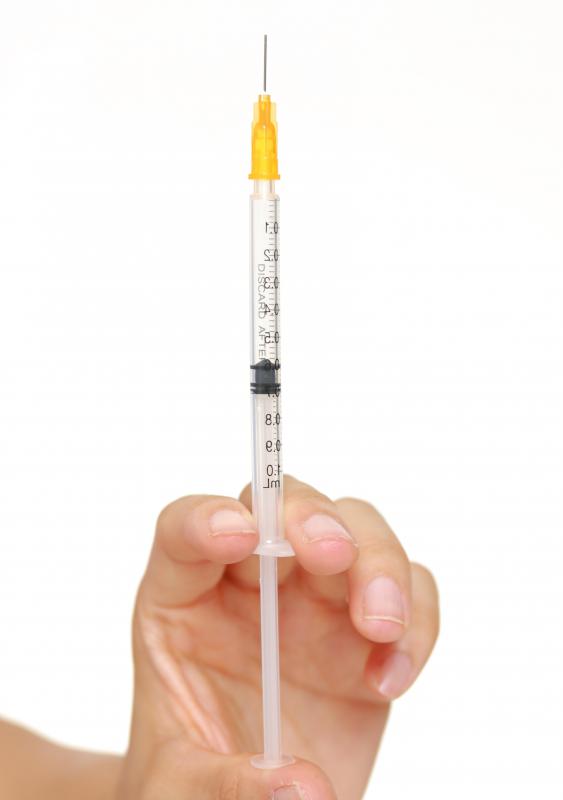At WiseGEEK, we're committed to delivering accurate, trustworthy information. Our expert-authored content is rigorously fact-checked and sourced from credible authorities. Discover how we uphold the highest standards in providing you with reliable knowledge.
What is the Relationship Between Gestational Diabetes and Insulin?
Gestational diabetes and insulin are heavily linked because just like in Type 2 diabetes, gestational diabetes causes elevated blood sugar levels due to insulin resistance. Women who are at risk of developing Type 2 diabetes due to obesity or a diet high in sugar are more likely to develop gestational diabetes, possibly because their bodies already have some level of insulin resistance. They are also more likely to develop diabetes later in life than those who have never experienced gestational diabetes and insulin resistance.
The main relationship between gestational diabetes and insulin is that pregnant women who have this condition do not process insulin the way they should. Insulin is a hormone secreted by the pancreas to break down and process glucose so that it can be used by cells in the body. Sometimes insulin is secreted so often and in such high amounts, the body becomes resistant to its effects. This causes the pancreas to make even more insulin, leading to a greater resistance. Diabetes is often the result if this continues for long enough.

Pregnancy makes a woman particularly vulnerable to gestational diabetes and insulin resistance. This is due to hormones secreted by the placenta which interfere with insulin's ability to process glucose. For most women, once the pregnancy is over their bodies return to normal and the diabetes goes away. That said, women with some level of insulin resistance or pre-diabetes are more likely to suffer from gestational diabetes in their pregnancies. This puts them at higher risk of diabetes later in life

Women who are diagnosed with gestational diabetes are generally required to follow a strict diet that is low in refined carbohydrates and sugar and high in protein and complex carbohydrates. Infants born to women with diabetes of pregnancy are a higher risk of being born larger than normal. This can lead to complications during delivery, and many doctors choose to induce labor in women with gestational diabetes to prevent this from occurring. Infants born to diabetic mothers are also more likely to have breathing problems, jaundice, and low blood sugar.

There is no cure for gestational diabetes and insulin resistance related to pregnancy other than for the mother to give birth. Most women are back to normal blood sugar levels without following a strict diet by two weeks after delivery, and almost all are back to normal by their six week follow up. A very few women will remain diabetic even after pregnancy ends. Some studies suggest that these women are likely borderline diabetic before becoming pregnant, and the pregnancy sets the process into motion.
AS FEATURED ON:
AS FEATURED ON:














Discuss this Article
Post your comments